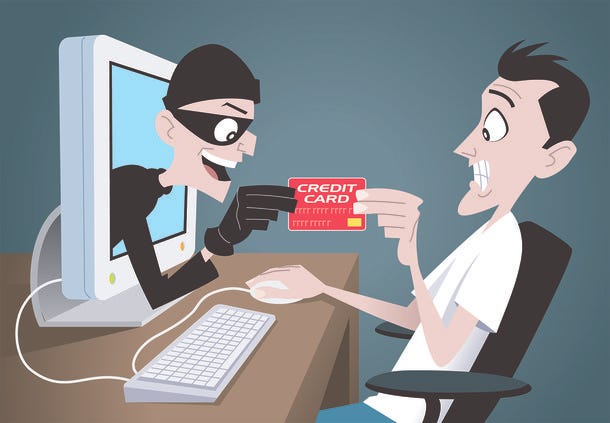Caregivers and Cybersecurity
Awareness - A Must!

I got an email from UPS saying my package was arriving early - I was expecting one - but not from them. The next day, I got an email saying it was coming Friday. Friday, I got a third one saying my package would arrive between 3 and 7 and in red letters it said YOU HAVE TO SIGN FOR IT. The email looked real. It looked professional and included a chat box to talk with customer service.
I couldn’t be there to sign for it - so I was ready to contact them - but caught myself in time. Phew!! I quickly blocked the email and heard nothing more - no damage or delivery.
Recently, we talked about five ways to care for oneself when giving care to a loved one. The ways are emotional, spiritual, psychological, physical, and practical. Knowing about scams is a practical and predominant way.
True, we’ve often discussed it, but as the website LTC News says
As a caregiver, understanding cybersecurity measures is vital to safeguard your loved ones' digital assets. By employing appropriate security practices, you can protect against unauthorized access, ensuring the privacy and integrity of these digital resources.
While I was caring for Dan, I monitored his phone and computer.
He wouldn’t leave the phone out of sight and answered every call he received, even though we repeatedly warned him not to. I would get up at night to block numbers on his phone after he signed up for a Wi-Fi service - a scam that took weeks to resolve.
While he vehemently denied it, Dan sold a large amount of stock online, creating tax problems. Fortunately, I had the financial power of attorney and took over the accounts.
For cybercriminals, senior citizens have never been a bigger target for fraud. As the Morgan Stanley website says
A typical senior citizen’s technology habits and attitudes make them attractive to cyber thieves. According to the Pew Research Center, 61% of seniors own a smartphone, and 75% surf the internet. But, most aren’t tech-savvy—only 26% of senior internet users feel “very confident” when using them.
Even when aware of the danger, many seniors don’t believe they would ever become a cyber victim and often underestimate the havoc a cyber attack can create.
The result? Senior citizens lost $1.7 billion as victims of online crime in 2021, and the U.S. has seen a 400% increase in internet crime toward this age group in the past five years.
A family member works for a law firm - their corporate and private clients have experienced data breaches. She offered wise reminders when we talked about the topic. She said to
Change passwords frequently.
Never join public Wi-Fi - “threat actors can infiltrate and monitor an inbox and wait for pertinent or personal information and use it against a person for ransom.”
Do not open suspicious emails or their attachments.
Enable multi/factor authentication for email and banking applications.
She also gave me the link to the NCOA article How Older Adults Can Improve Their Personal Cyber Security.
I’ve said it before - and at the same time, I can’t say it enough - because
Countless online scams target seniors, who lost $3.1B to fraudsters in 2022—an 84% increase over the previous year.
So, you want to be familiar with all the scammer tricks - for yourself and the loved ones for whom you care.
These two articles may be informative.
The author reminds us that
Caregivers face a severe problem, more significant than unpaid labor or financial sacrifice, and the more dangerous because it isn’t as apparent to them.
Caregivers are often unaware that caregiver stress can damage their mental and physical well-being.
The stresses are even more significant for caregivers balancing a job and a family. Untreated anxiety can worsen chronic conditions, weaken the immune system, lead to weight fluctuations, and chip away at mental health.
How to Identify and Reduce Caregiver Burden
Caregiver burden is unique to informal or family caregivers. This term describes the cumulative physical, emotional, social, and financial impact of providing care. The phenomenon was initially studied in family members caring for loved ones with Alzheimer’s disease and other forms of dementia.
Over the past few decades, research has shown that certain factors increase a person’s risk for caregiver burden, including social isolation, being female, spending more hours providing care, depression, financial stress, and a lack of choice in being a family caregiver.
If you want to contribute to my work, consider donating to the Alzheimer's Association. This link takes you to their website. The choice is yours.




As a caregiver, understanding cybersecurity measures is vital to safeguard your loved ones' digital assets. By employing appropriate security practices, you can protect against unauthorized access, ensuring the privacy and integrity of these digital resources.
Really helpful ❤️